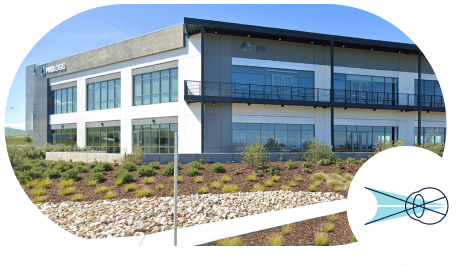Age-Related Macular Degeneration & AREDS Supplementation

Age-related macular degeneration (AMD), the leading cause of vision loss in people over 50, has no cure. To help manage the symptoms and outcomes of AMD, the National Eye Institute sponsored a groundbreaking two-part study called the Age-Related Eye Disease Studies (AREDS and AREDS2). In these studies, specific nutritional blends were found to delay AMD progression, help preserve vision longer, and benefit overall vision health.
The Benefits of AREDS & AREDS2 Supplements for AMD
The AREDS and AREDS2 studies identified key vitamin and mineral supplements scientifically proven to help lower the risk of disease progression in people with moderate to advanced AMD. These nutrients included:
- Vitamin C – an antioxidant that reduces oxidative stress. The macula (the central round area of the retina) is susceptible to free radicals (unstable molecules that can damage cells) and oxidative stress (an imbalance between free radicals and antioxidants). Vitamin C minimizes oxidative stress and reduces the risk of cataract formation; this essential nutrient can prevent.
- Vitamin E – an antioxidant that protects the eyes from free radical damage and may also improve retinal blood flow and reduce retinal stress and blood pressure.
- Beta-carotene, Lutein, and Zeaxanthin – carotenoids, which are micronutrients similar in structure to Vitamin A. Carotenoids are transported to the retina, where they protect the retina against damage done by light.
- Cupric oxide (copper) – a trace mineral thought to help protect against AMD progression by balancing the level of zinc and iron. Studies have reported higher iron levels in the retinas of those with AMD than those without AMD. Copper and zinc may prevent iron levels from rising too high.
- Zinc – a trace mineral thought to play a significant role in retinal function. Zinc deficiency results in reduced retinal function and trouble adapting to night vision.
AREDS was the original formulation of a high-dose nutritional supplement for people with AMD. Later, scientists developed a second formulation called AREDS2. AREDS2 was formulated without beta-carotene, which was found to increase cancer risk in smokers. The beta-carotene was replaced with lutein and zeaxanthin.
A Word From Retinal Consultants Medical Group
AREDS and AREDS2 supplements are available over-the-counter without a prescription, but it’s essential to check the label to ensure the "AREDS” or “AREDS2 Formula" verbiage appears on the label. It’s important to note that AREDS and AREDS 2 supplements do not prevent AMD. If you have AMD, only take the supplements upon recommendation of your ophthalmologist.
Consult with a Retina Specialist for AMD in California
Anyone between the age of 40 to 54 should have regular dilated eye exams at least every two to four years; if you are over age 55, an eye exam is recommended every one to two years, depending on your retinal specialists’ recommendation. If you have AMD or other health conditions (e.g., diabetes), you may need more frequent exams. Contact your local Northern California retina specialist at Retina Consultants Medical Group today to schedule an exam.


